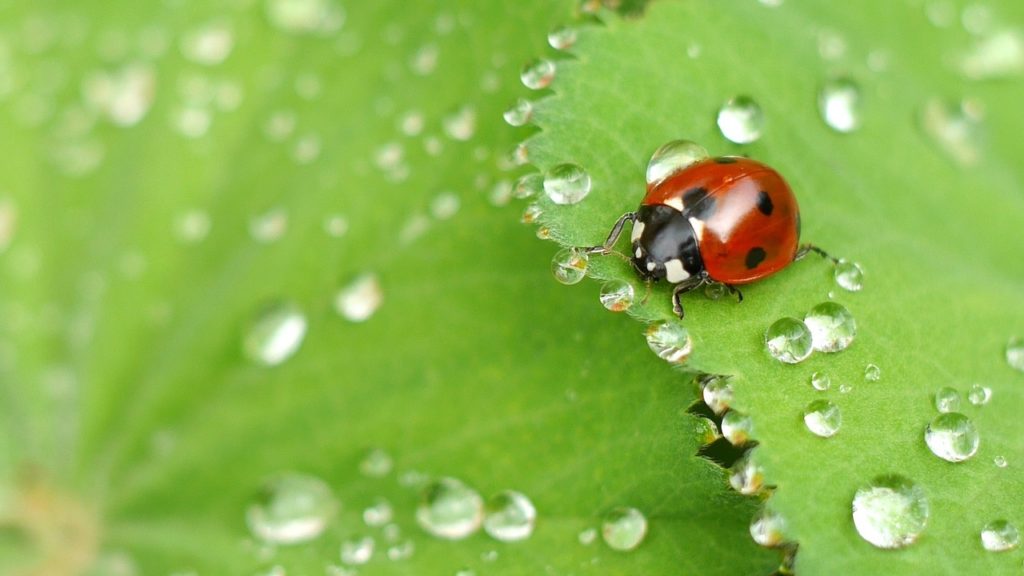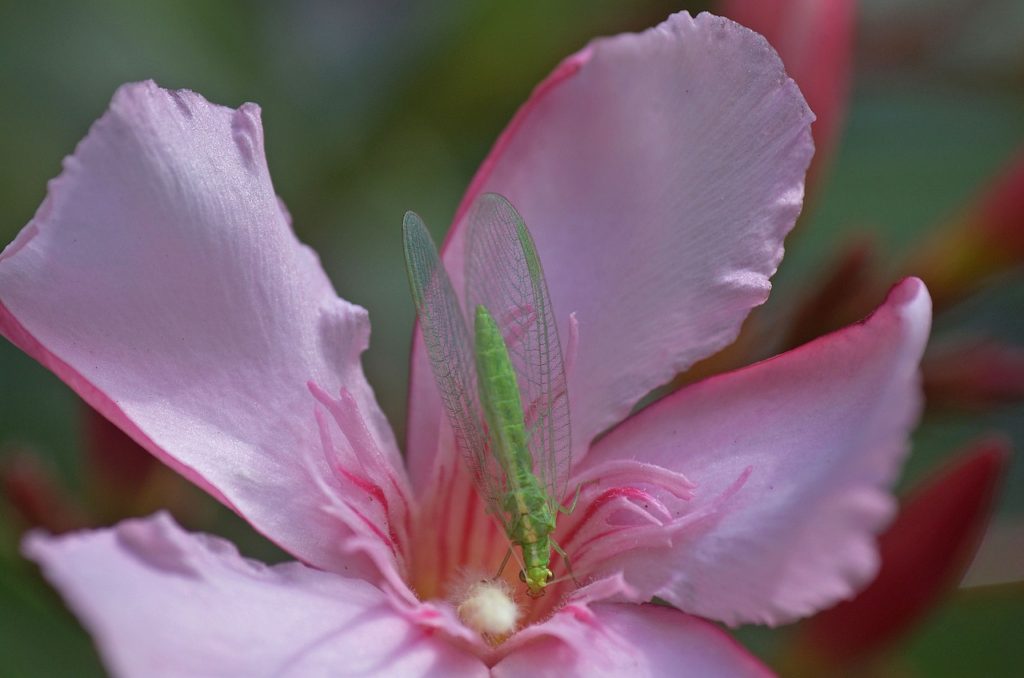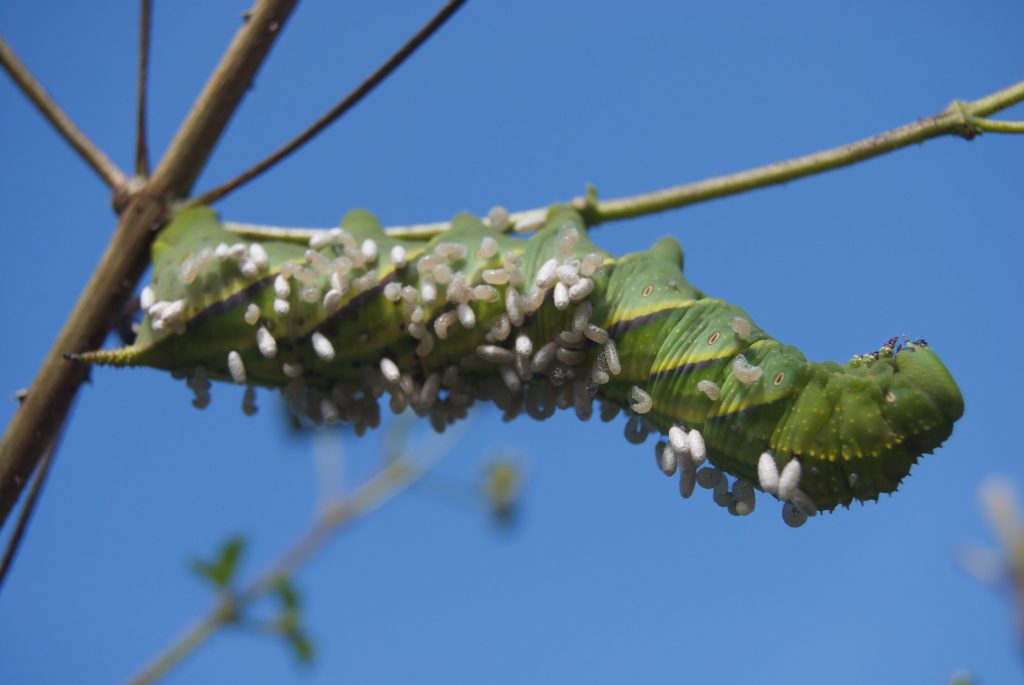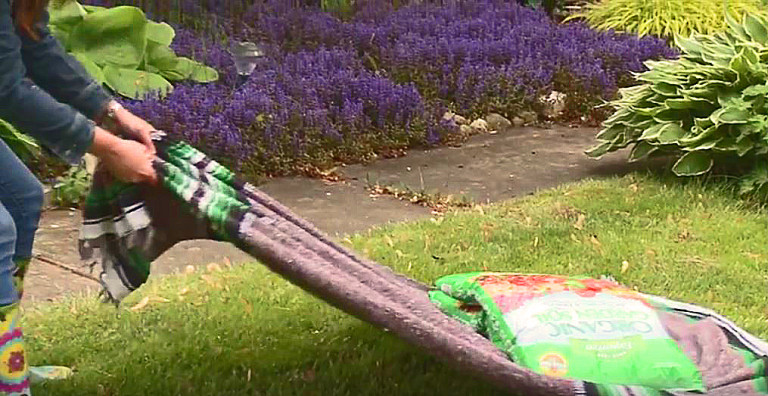What are Beneficial Insects

Beneficial Garden Insects
Beneficial insects help you by pollinating or controlling pests in your garden. They can hunt and kill bad bugs for you, for example. They are saving you the hassle of having to pollinate by hand or take care of pests yourself, thereby enabling your garden to grow stronger as Mother Nature intended. We all need beneficial insects in our gardens.
The trick to a smart garden filled with beneficial insects is to first attract beneficial insects with companion plants and living conditions that the insects might like. If you see that a group of bugs is eating one of your plants, do not spray ALL the bugs willy-nilly with a pest control agent. First, identify the specific bug that is causing the damage you are concerned about and determine if it is a bed bug or a beneficial bug. Then target that specific pest. This enables the beneficial insects to go on living the high life in your organic garden beds, which in turn saves you a lot of work.

List of 4 Fantastically Beneficial Insects
Below is a list of four wonderfully beneficial insects. Practicing Integrated Pest Management utilizing beneficial insects takes a bit of patience because sometimes it takes a while for a pest to be attacked by a beneficial.
Ladybugs – While there are several different varieties of ladybugs across the country, the one thing they all have in common is that they love plant lice – also known as aphids. Soft-bodied insects do not stand a chance against the voracious and beautifully deadly ladybug. Plants such as fennel, dill, yarrow, butterfly weed, marigold, and scented geraniums seem to attract ladybugs.
Lacewings – Feed on all types of insects including aphids, thrips, mites, caterpillars, scales, and mealybugs. Lacewings larvae are sometimes called aphid lions because they consume such large quantities of aphids. In my experience, a great companion plant to bring in lacewings is sweet alyssum.
Spiders – While spiders are not attracted to the typical flowering companion plant, they do love straw mulch and perennial plants and shrubs that will support their spider webs. Some spiders use webs and others literally hunt their prey down and capture their food. Spiders survive by consuming their prey after they catch them. While spiders are necessary for keeping the insect population down, they typically kill indiscriminately, taking both good bugs and bad bugs.
Parasitic Wasps – Predatory wasps lay their eggs on the backs of caterpillars, larvae, and other creatures. If you see a caterpillar with a lot of white capsules on its back, leave it alone – they’re eggs about to hatch. This process kills the caterpillar and births more wasps. These wasps control moth, beetle, and fly larvae populations and are also fine pollinators. Plants that attract wasps include coriander, fennel, sweet alyssum, parsley, tansy, yarrow, and zinnia.

What To Use Against the Non-Beneficial Bugs?
If you have identified that the insects in your garden are NOT beneficial and they are waging war against your herb and vegetable garden, then it might be prudent to take the next step. I am partnering with McLaughlin Gormley King Insect Solutions (MGK) in my garden this season for organic pest control. Azera Gardening for organic gardens is an OMRI-listed pesticide product that you can use in your organic garden beds. Azera quickly knocks down hard-to-kill insects including aphids, beetles, caterpillars, whiteflies, and leafminers. Apply the product as soon as an infestation is noticed, when target insects are active, making direct contact with the bug with the application.
Special thanks to McLaughlin Gormley King Insect Solutions (MGK) for sending OMRI® listed botanical insecticides derived from chrysanthemums Azera Gardening at no cost so that I can show you how to get rid of bad bugs and keep beneficial insects in the organic garden. Get product at www.MGK.com.



